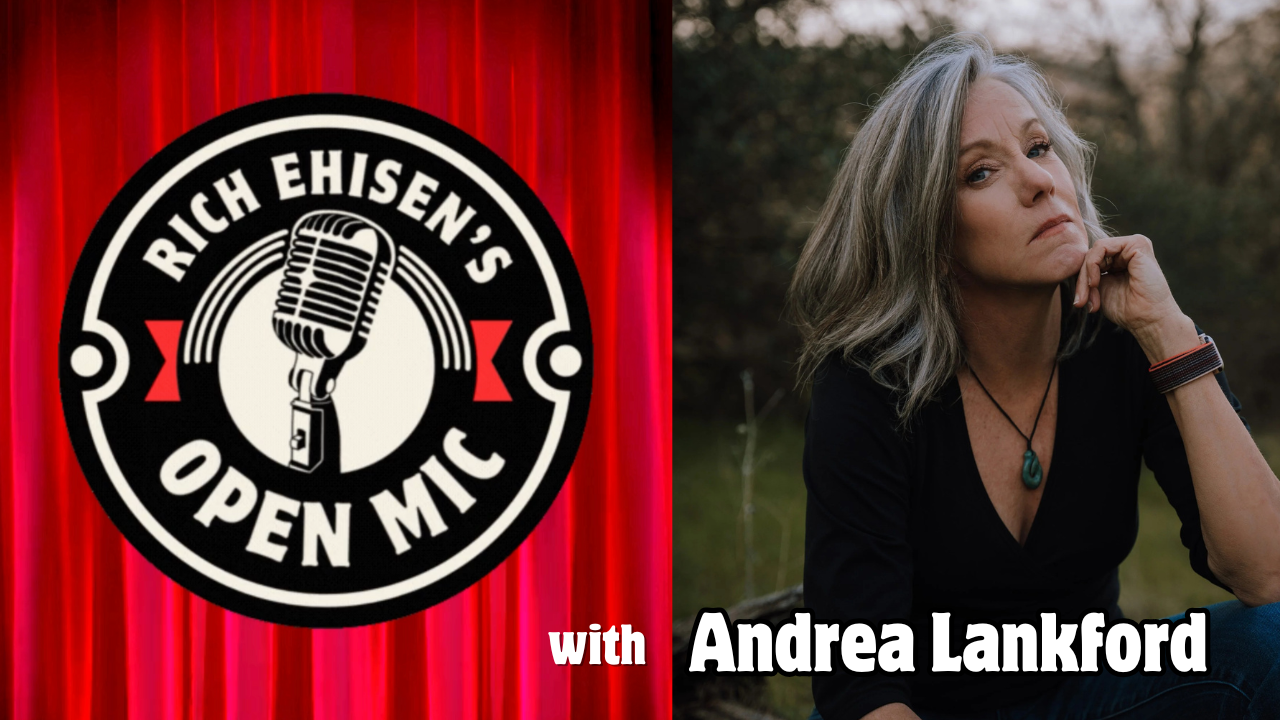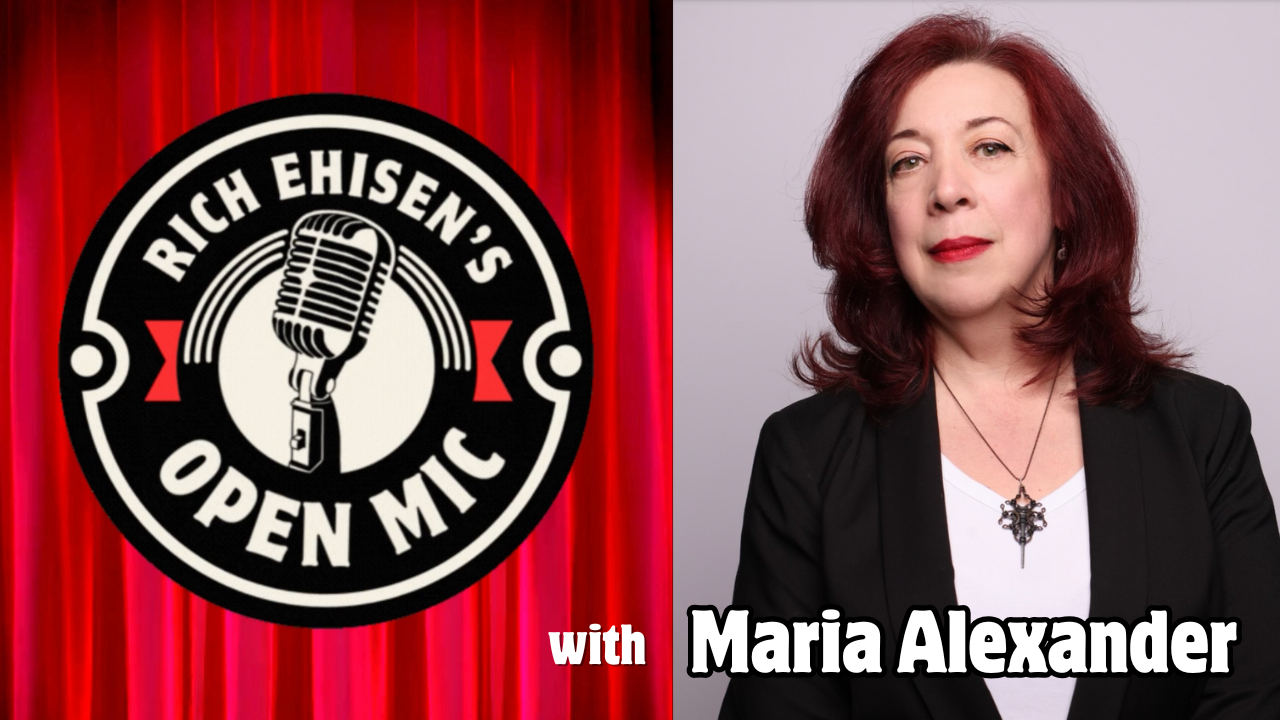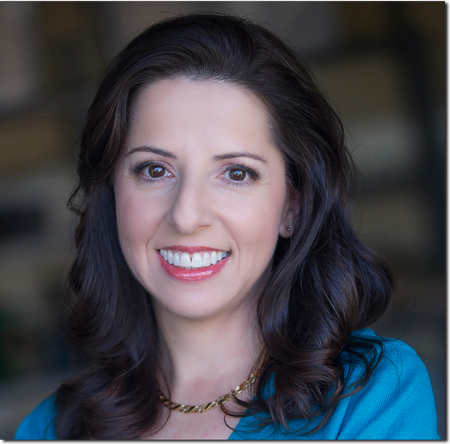
Author and philanthropist Gina L. Mulligan began her award-winning writing career more than 20 years ago. Starting out as a successful freelance journalist she eventually moved on to short stories and then historical fiction, releasing her first novel, “Remember the Ladies,” in May of 2016. She quickly followed that up with her second novel, “From Across the Room,” in September of that same year. Mulligan’s latest project is a lot more personal. Drawing on her own experience of battling breast cancer, Mulligan started the charity Girls Love Mail, which collects letters of hope and encouragement from around the globe to be distributed to women through cancer treatment centers and programs nationwide. To date, Girls Love Mail has collected over 100,000 letters, 100 of which are featured in Mulligan’s new book “Dear Friend: Letters of Encouragement, Humor and Love for Women with Breast Cancer.” The project has drawn national attention that keeps her very busy, but Gina graciously made time recently to sit down with the Open Mic to talk about “Dear Friend,” the art and craft of historical fiction and the state of the publishing industry.
Open Mic: What is it that drew you to historical fiction instead of something else?
Mulligan: It began at the Hotel Del Coronado in San Diego. It’s such a beautiful hotel and I wondered what it was like when it opened in 1888. I’ve always loved history and the Victorian Era anyway, so I started doing research and wrote a short story about a character at the hotel on opening day. It was awful but it turned into doing even more research, and that character in the short story became the character in my novel “From Across the Room.” It’s an epistolary novel so it’s all letters, which took a lot of research. In doing that research I also stumbled across the women that were political lobbyists before women had the right to vote. And that really struck me. It seemed like an interesting piece of history that had been forgotten. That eventually became my next novel, “Remember the Ladies.” So I never was a history buff but suddenly as an adult now I have a new appreciation for it.
Open Mic: When you do your research, are you usually looking for something that’s really unique? 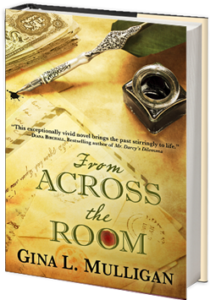
Mulligan: For me I wasn’t really looking for things to jump out. I think what I’m looking for is pieces for myself that are interesting and that aren’t really written about much. As a writer I think it gives you more flexibility to be creative and reinvent the stories. With the lobbying, most people don’t know anything about it or the constitutional amendment that would have granted voting rights to women but which did not pass. There’s not much written about it so I can make up anything I wanted about how maybe that came about.
Open Mic: Are you going to stay in historical fiction?
Mulligan: I think so. I’m starting one now that’s still really rough. I found out that in 1886 there were 26 women housed in Folsom Prison because the California Department of Corrections wanted to see how the women did with the men, thinking women would actually help the men stay calm. Of course all kinds of horrible things happened and so that little piece I found fascinating. Right here in Folsom and so that is probably my next story. And so again I stumbled on that. These little things just jump out and make me think, ‘how did we not know this?’ But I don’t think I’ll stay only with historical fiction. I think I have some stories I want to tell that are more current.
Open Mic: Any time you’re writing fiction you’re creating people out of whole cloth. But with historical fiction there is also the backdrop of reality. How do you craft your characters within that context?
Mulligan: The people and the attitudes and the personalities certainly have to stay within the context of how people really reacted and responded in the era. You don’t want to impose today’s moralities on your characters. For example, in the 1800s there were women who really did not think we should have the right to vote, that it was unladylike. And so I put those character bits in there in some of my sub characters. I got a lot of flak for that. People didn’t think that was real, but it was very real. You do have a framework in historical fiction, I think a little more so than maybe other genres, that you kind of stay within. For me as a writer I kind of like that. It helps me keep contained and not get too wild.
Open Mic: Your work has a very strong theme of empowerment for women. How important is that to you in crafting your characters?
Mulligan: It didn’t start out that way. It developed as I became more involved in the writing. I feel strongly about showing women in a positive and forceful light. In doing research I learned there are so many amazing, strong, intelligent women we never heard about. We barely know their names. They were always there but they just didn’t get the recognition. I often talk to my nieces and they laugh because they think their generation is really the one moving women forward, but that’s so not true. It was so far back, women doing amazing, great things but we don’t remember them.
Open Mic: It sounds like the younger generation doesn’t always appreciate what you’re writing about.
Mulligan: I think they appreciate it, but I think they don’t know the history. I have six nieces, all in their 20’s and teens, and they all seem to think that what’s going on currently [with women] has always been the case. There’s no foundation to how things are now. It didn’t build up from anything, it just kind of is. They just know they’re strong and they’re powerful and what’s the problem? And they never do look back to see how did we even get here. It’s not a question anymore for them, which is good in a sense that they can be strong and do what they want to do and live their lives, but they like don’t look backwards and they don’t have that sense of appreciation of the foremothers who came before them and really set the groundwork for all of their freedoms today.
Open Mic: Are there timeframes other than the Victorian Era in which you could see yourself setting a story?
Mulligan: I have always wanted to do a story set in the Middle Ages, only because I’m Jewish and there is a lot of Jewish history in the medieval times you just don’t hear about in fiction very often. I think it would be fascinating to hear about the Jewish perspective. We think about medieval times as knight and warriors, but there’s this whole pocket of Jewish communities that were living in that era. I don’t know much about that era so I would have to really start over, but that’s one thing we do in historical fiction. Most historical fiction writers I know, myself included, stay in a specific era for a while because you’ve done all the research. You’re a little bit more of an expert and you don’t have to go research every single bit, which takes a lot of time.
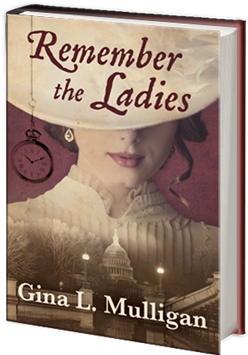 Open Mic: What has been the reaction to your work from people who really do know the Victorian Era?
Open Mic: What has been the reaction to your work from people who really do know the Victorian Era?
Mulligan: Actually really good. I haven’t had anyone tell me I got anything wrong!
Open Mic: Genres like mysteries and romance have certain restrictions of parameters that readers expect to be adhered to. For example, most mystery readers expect a story to have a dead body in the first few pages. Does historical fiction have similar “must have” requirements?
Mulligan: That’s a good question. Some people call it a genre fiction but it’s not, really. Because when you read historical novels they can be very different. One requirement is the story must take place in the historical setting. If the same story could be told in a modern time, it’s not technically an historical novel. Not a requirement, but I think historical fiction reader expect some romantic element. Not a romance novel per se but some theme of romance.
Open Mic: Is the genre predominately aimed at women?
Mulligan: Yes, historical fiction is primarily aimed at women readers. I think it’s probably 95 percent.
Open Mic: There’s so much attention being paid these days to white authors who write characters of color or who are of another culture. There are those question how that author could possibly know or understand how that character would actually feel or act. I do understand the concern but it seems so incredibly limiting and in a lot of ways arrogant to believe that somebody whose job it is to create fiction would not have the ability to write a character accurately. What is your perspective on this?
Mulligan: There is definitely so much focus now on ethnic characters and ethnic backgrounds and the sense that if you’re not a certain ethnicity you can’t possibly truly understand, and maybe there’s some element of truth to that. I think with historical fiction you get around it some by doing the research of the era. If you’re strong in the research and you’re accurate in all the other aspects, readers will believe what you say about the characters, too. To help, what I do – and I’m sure other writers must do this as well – is I read books written in the era to help understand what was true for the culture then. It’s also funny because even writers in their own ethnic backgrounds feel that pressure. I’m Jewish and I know some Jewish writers feel all this pressure to write a character representing all of the culture. How do they do that? They may only know one little piece of the culture. There’s all this pressure on them to get it right. Well, that’s not their job. They’re doing characters. It’s a story. Since when is a fiction writer supposed to represent a whole culture?
Open Mic: How much research do you find yourself doing for one of these novels?
Mulligan: It varies. For the first one it was a ton because I didn’t know the era as well. I started writing the story and then had to go research, and then find more pieces and more research. The second novel was reading more ahead of time probably because I knew a little bit more where I was going. I had some knowledge already so I didn’t have to quite fill in all of the details. But then there are thing I would write like referencing a toaster. Wait, was there a toaster back then or what did they do for bread? There was also general reading about politics of the era. What I found worked best was the actual specific books. Wading through big tomes on the gilded age was tough. What worked for me more was a book on politics or a book just on food, just on the dress or different aspects that made it a little easier to digest. The first novel took eight years to write and I was researching on and off for the whole time. I didn’t just sit down for six months and do all my research, do an outline and then write a book.
Open Mic: Do you write off of an outline?
Mulligan: I do now. I did not on the first one, which was a big mistake. The second one I did and it was much easier.
Open Mic: And how detailed are the outlines that you produce?
Mulligan: It was fairly detailed. It wasn’t line by line or category, but it was a general overview. This is what the plot needs to be, this is when these things need to happen, etc. Towards the end I started laying out more chapters, but at first it was more general. I know these are the steps the main character needs to go through, and then things would change as you start writing and would know I needed to put some more in at a certain spot or to move things around a little bit. The first novel was a giant puzzle because it’s an epistolary format, which is really complicated.
Open Mic: Would you ever do another one?
Mulligan: I would have to be paid ahead of time in advance to do another one.
Open Mic: When it’s time to actually sit down, I mean I know how I am, what do you need to actually be able to write?
Mulligan: I’m so boring. I’ve got a desk at home in a little office, I sit down like any other job at a certain time and I sit there and I make myself write. I don’t write at coffee shops or out doing anything. It is a job and some days you want to do your job and some days you don’t and what I found is if I make myself stick long enough, it can often go better. Sometimes not. And then some days go really well, I don’t know why, you have those good days and you wonder, what did I do differently? Nothing, it just went well that day.
Open Mic: Do you have a word count that you strive for every day?
Mulligan: I usually have about a word count. I try to do 4,000-5,000 words somewhere in there, which is a lot. But with the charity I only have certain days I can write now. So I try to make the most of those days because I can’t write every day anymore. If I can’t get a word count I try to get a chapter outline at least done or a rough draft of a chapter done if I can. That’s my goal. I tend to kind of blob on and then go back and do a lot of editing. I love editing. I don’t love the first draft as much as probably some writers. I find the first draft more of a struggle. I want to just get something down on paper and ideas out because if I don’t get it down I’ll forget.
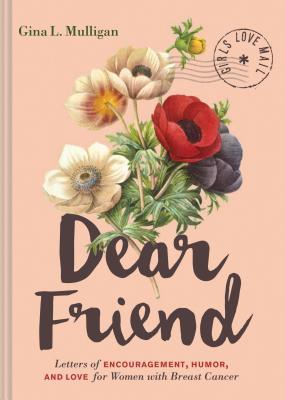
Open Mic: Tell me about your new book “Dear Friend.”
Mulligan: The whole title is “Dear Friend, Letters of Encouragement, Humor, and Love, For Women with Breast Cancer.” So the title tells you what the book is. But it is a contributor’s book, so it’s not all my content. It is letters I’ve collected through my charity Girls Love Mail. The start of it really was “From Across the Room.” I was diagnosed with breast cancer while I was writing and researching all those letters for the book. I read a lot of real letters from that era to know how they wrote, so I was really up to my neck in letters when I was diagnosed. What happened was I started receiving letters – I actually got over 200 cards and notes in the mail. Getting all those letters in the mail was what made me realize how really important letters are. We’ve forgotten how healing they are. That’s what started the charity. So Girls Love Mail began because of that novel and getting all these letters and putting them all together and realizing other women were not given that kind of special healing. So that started six years ago. The idea for the book started fairly early because I started getting this really great content. These letters were amazing, they were beautiful. I got one from an oncology nurse who had been a nurse for 20-plus years who had just been diagnosed with breast cancer herself. She wrote about how much she almost appreciated getting cancer because now she could understand what her patients were going through. Now she could see both sides and knew she would be a better caretaker. That letter really stuck with me. It’s not in the book but it just stuck with me, the idea that there’s more that we can do, that more people need to get these letters. We’ve sent out 100,000 letters since we’ve started but there’s more that we can do. And that’s where the book came from.
Open Mic: Wow, and how many are in the book?
Mulligan: I believe there are 100.
Open Mic: So from 100,000 down to 106. Have you read all of them?
Mulligan: Myself and my volunteers. I don’t read them all anymore. I used to read every single one and then it got to be too much. So I’ve got 10-11 volunteers who come in regularly and help me read letters. It’s a lot of reading.
Open Mic: Will there be more volumes of the book then?
Mulligan: I hope so. We’ve been still saving them. If something jumps out we put it aside. We’ve talked about other versions of the book, maybe letters all from children or maybe one that’s all religious content letters. We do sift those out, they don’t go out in the mainstream. I believe this book truly has a long shelf life. The letters are timeless. They’re from all ages all across the world. We’ve even got letters from Israel and the UK and Canada in the book.
Open Mic: And how did you publicize this so people all over the world knew about this?
Mulligan: It was all the Internet and word of mouth. I didn’t do anything. We had some media exposure, but the overseas things were just internet. People found it doing Google searches.
Open Mic: I know you were on Steve Harvey’s show, but what got all that rolling? Was there a campaign to start publicizing and asking for letters?
Mulligan: We started in August 2011. October is Breast Cancer Awareness Month so I sent out a press release and it got picked up by a lot of local media. Ours is an easy program: we collect handwritten letters for women going through breast cancer treatment. It’s very easy to explain so the media liked it and it got a lot of attention. And bloggers picked it up, too. Bloggers are everywhere, and we found we were on the news in other cities. We sent a release to the Steve Harvey Show and they had us on. It was all just kind of odd and really strange. And what was really strange for me as a writer was to sort of put all my background together. I had done marketing before, then the letter writing for all those years, my background in writing and having kind of run a business: all of it came together for this charity. It’s taken on a life of its own. I’m just steering the ship.
Open Mic: And where do the profits go?
Mulligan: They all go to the charity, Girls Love Mail.
Open Mic: Tell me a little bit more of how the charity works?
Mulligan: So how it works is anyone can write a letter, and then they mail them to us here in Folsom. We read them, put them in our special envelope and they go out through breast cancer centers throughout the country. We’re at about 160 centers right now.
Open Mic: So you actually distribute the letters too.
Mulligan: Oh yeah, they’re not just for the book. The book came about because letters jumped out. We did not set out to do a book. The charity is first, the book came second.
Open Mic: If somebody wanted to have a letter written to a specific person could they do that?
Mulligan: No, because of confidentiality laws like HIPPA. You write a more universal letter and we get them out. They get distributed somewhat randomly, though I’ve heard some amazing stories. For example, out of 100,000 letters we had a woman who loves butterflies get a card with butterflies. We get those stories all the time. It’s really weird but I feel like the right letters get to the right women.
Open Mic: And your own health is good?
Mulligan: Yes. I’m cancer free since 2009. I just had a check-up and I’m all healthy.
Open Mic: We’re always told to write what you know. I’m sorry you had to write this one, but I imagine that the connection is probably not easily explained to somebody who hasn’t had that experience.
Mulligan: It’s funny but yes and no. When you’ve had cancer this book has a different meaning for you, but I’ve had people who have not had cancer look through this and be moved to tears. There’s a universal connection of care that’s in this book. Stranger have taken time to write these really encouraging, caring words, and it comes through. I think there’s something really special about that, and that’s why I think this book is so important.
Open Mic: This seems like such a very personal, direct way to be kind to people.
Mulligan: What’s really interesting is we knew when we started this that the letter recipient would get value. I’m a letter recipient. I know what they meant for me. They were very healing. What I didn’t expect was how many letter writers would write personally to thank me for the charity. But you know it was very cathartic, first of all, to write their stories if they were a survivor or had a friend or a family member who was. But even beyond that it was just that sense of being able to do something. It doesn’t take a lot of time or any money besides the cost of a stamp and paper, and they felt like they were putting good into the world. I do think that’s what it was that has resonated so quickly with so many people.
Open Mic: Is the publishing industry better or worse now for writers? Where do you see it going in the next five years?
Mulligan: I think we’re going to see publishing go away in the form that we see it now. I always think about publishing as back in the day when you had to publish a book and had to have the printing equipment and the space to store 10,000 copies and that was how you got discounts. What changed the industry, I believe, was not so much eBooks but print on demand technology. The fact that you can print one or two books for the same cost as printing 10,000, that’s what opened up the doors for everyone to write a book. I can print a book at the same cost, so what do we need a publisher for? The publisher is really about marketing. What I see in the next five years is Random house doing marketing and not really publishing anymore. They’ll help you print a book, and all the writers will be trying to get into the right marketing people.
Open Mic: Let’s say I have the power to allow you to sit down and have a coffee and conversation with one of following three people: Queen Victoria, Aretha Franklin or Billy Jean King. Who would you choose and why?
Mulligan: I think I would choose Aretha Franklin. I think she would have amazing stories. She is women’s empowerment in a more modern age. And think of the wonderful stories of what’s changed in her lifetime. Think about what she’s lived through, all the race and gender issues. Can you set that up?

